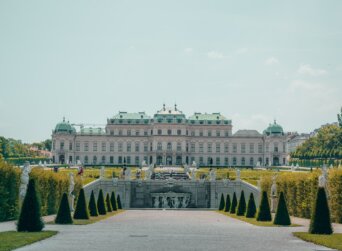- About
- Topics
- Picks
- Audio
- Story
- In-Depth
- Opinion
- News
- Donate
- Signup for our newsletterOur Editors' Best Picks.Send
Read, Debate: Engage.
| topic: | Election |
|---|---|
| located: | Austria |
| editor: | Katarina Panić |
Headlines worldwide shared the results of the regional elections in Austria last Sunday, emphasising that the communist party, KPÖ, won the country's second biggest city, Graz. The vast majority of the headlines described such an outcome as surprising. However, some residents say it wasn't as unexpected for those who have been familiar with local circumstances over the past few years.
Unlike the rest of the political parties, which put their promotional materials in peoples' post boxes one after the other, the ruling party in Graz sent personalised letters to citizens - misusing the right to access voters' lists and personal information. Many people didn't like it.
"Neither did I. Over the last several years, people have become more sensitive to personal data protection,” Aleksandra D. told FairPlanet. She arrived in Graz from Bosnia in 2000, when she was 19 and received Austrian citizenship in 2015, granting her the right to vote.
The centre-right People's Party has run the city for 24 years and its incumbent mayor has held his position for 18 of them. Apparently, the city’s voters’ change in party is retribution for the several scandalous affairs of the past few years, such as alleged embezzlement of public money by the kindergartens or the construction of a small hydroelectric power plant without the public’s decision or democratic input. Furthermore, housing prices have become too expensive as new constructions have soared while thousands of apartments remain available.
"During the pre-election campaign, we learned the mayor's salary was around €117,500 per year - three or four times more than average and seven times more than the country's minimum wage,” Aleksandra D. added. “Besides this gap between political elites and ordinary people, there is clientelism too: the ruling party was undoubtedly close to businesses, not to the working class.”
On the other hand, the communist party has been outside of the federal parliament for more than six decades - but in Graz, they received 20 percent of the vote in the previous election four years ago. They share the power but have an internal rule: every official who earns more than €2,000 monthly has to renounce the surplus in favour of the solidarity fund that the party runs for people in need.
"Both publicly and practically, they distance themselves from the repressive communism of Hungary or Poland," Aleksandra explained. “Here in Graz, they insist on good things, such as social equality, environmental protection and better integration of foreigners."
Photo by Leyre .
